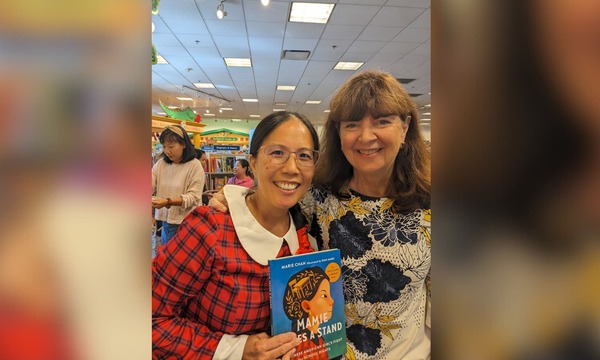Thirteen Biola University students traveled to the Dominican Republic last month and witnessed something behind the rough exterior of the country: a strong family atmosphere and hope exhibited both in the faith of the Dominicans and in the Dominicans’ love of baseball.
Equipped with notebooks and cameras, students spent spring break gathering information and photographs for a book, “The Dominican Dream: A Passion for Baseball, a Love of Family and a Hope for the Future,” to be published later this year.
“The world of baseball in the Dominican Republic is both a simple but complex world to comprehend,” said executive director of International Youth Initiative Keith King, who helped organize the trip. “A very poor nation of 2.5 million youth with a game as their greatest hope is at best difficult to grasp.”
As they were taken far beyond their comfort zones, students found their hearts transformed.
“They brought their hearts of compassion, eyes of empathy and a passion to understand how a whole generation, literally their peers in that country, could pin their future hopes to the game of baseball,” King said. “They soon learned that, to the Dominicans, it is much more than a game; it is a way of life.”
Accompanied by their two professors and assisted by several translators, the class visited locations in Santa Domingo and surrounding areas. They spent a day at a Dominican beach witnessing the issues of prostitution and poverty and interacting with a people who love to party. They listened to the stories of youth in prison, spoke with former Major League Baseball players at Baseball City, embraced loving children at the Haitian Batey and the poor Capotillo district, and learned about high school and college students’ difficulties with making time for school and finding work.
“One of the things I wanted the students to learn was to see a culture beyond stereotypes and cliches because that not only makes for better writing and photography, but it's also how God sees people,” said Biola professor Sharon Fain. “Which is very hard to learn in a classroom.”
Despite a basic planned schedule, interviews fell through, new prospects came up and the group often split up to cover different topics in one day, forcing students to go with the flow.
Fain said she was nervous and unsure what would happen once they got to the Dominican, but in the end, was blown away by the students as they remained open to stories, new ways of looking at people and God’s direction.
“We can often conceive of cross-cultural ministry in a very narrow ‘missions’ box, but these students really showed how storytelling and asking good questions can be used by God,” Fain said.
Senior Kathryn Watson, a writer for the trip, agreed.
“Our team was not equipped with verbal testimonies and messages,” Watson said. “Rather, we came with the intent to listen. With our pens and notebooks, recorders and cameras, we were able to capture the faces and heartbeats of a culture earnestly searching for something. By sculpting our stories out of what we have listened to and seen, we have the chance to show not just the precious people of the Dominican Republic, but the world, how Jesus is the answer to their search.”
Professor Tamara Welter said she saw a commitment to excellence in the project that surpasses most student team efforts she has participated in.
“It was the late evening discussions about faith and humanity, the unbridled laughter and dancing in the rain, the close-contact conversations in the sardine-mobile, that were used by God to bring depth to the experiences for all of us on the trip,” Welter said. “Those are the things that won't necessarily show up in the pages of the book, but they'll have a longer shelf life, for sure.”
King expressed a similar reflection on the ultimate purpose of the trip. He looks forward to the book the class will produce, he said, but more than that, he looks forward to the many ways God will use each person in the class to impact others through journalism.
“What started as a class of students reporting on baseball transformed in a much deeper way into youth from one culture reaching out and seeing the avenues they could follow to use their gifts to change the hope for the youth of another culture,” King said.
Dominican Reflections from Mike Villa on Vimeo.
Dominican Republic-The People from Sarah Grunder on Vimeo.
Videos created by students Mike Villa and Sarah Grunder, both of whom were photographers for the book project. Videos not produced by or affiliated with Biola University Communications and Marketing department.
Written by Harmony Wheeler. Wheeler was a photographer and writer for the book project and graduates May 2011. Jenna Bartlo, Media Relations Coordinator, can be reached at (562) 777-4061 or through email at jenna.l.bartlo@biola.edu.
 Biola University
Biola University.jpg)
_(1).jpg)

.jpg)